Meet Emerson’s Newest Faculty: Part 2
This fall, Emerson welcomes scholars in media and culture and media and the environment, an economist, an expert in 17th-century literature, a Broadway lighting designer, a Boston poet laureate and a Pulitzer Prize-winning novelist.
Emerson Today invited new faculty (and returning faculty in new roles) to answer a handful of questions about their work and themselves. Read Part 1.
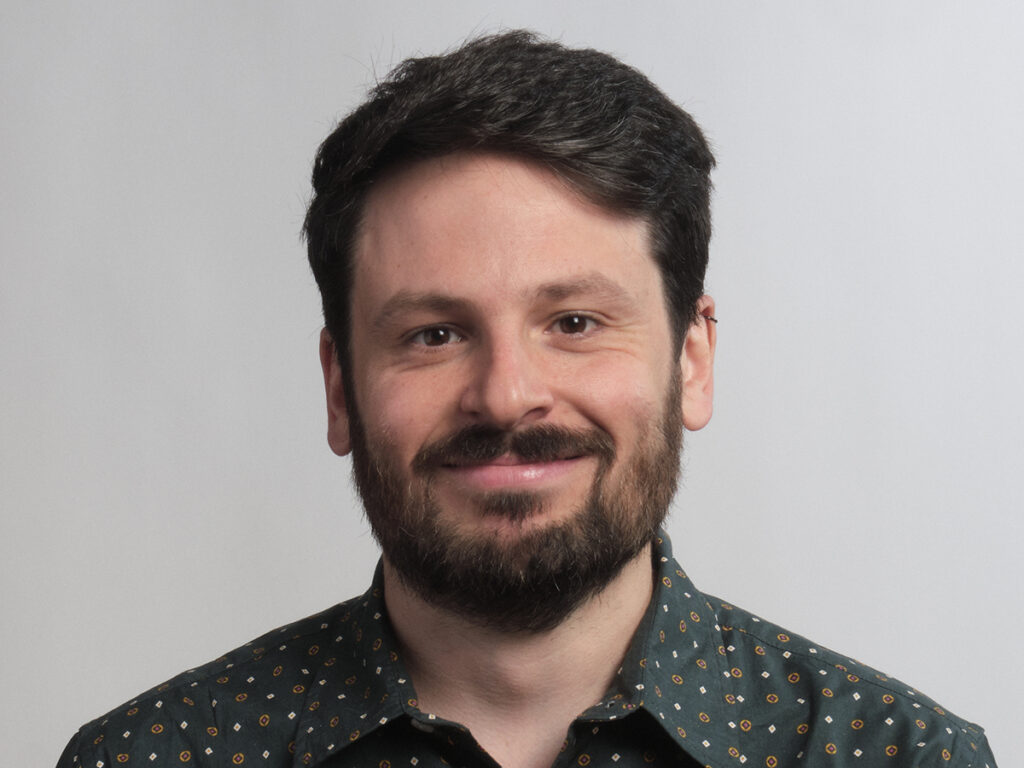
Joaquín Serpe
Assistant Professor, Visual & Media Arts
Fall 2024 Courses: Media Histories (VM134)
Joaquín Serpe is a media and cultural studies scholar whose research interest focuses on how the transition from broadcast to digital media has transformed media pedagogy and the dissemination of political thought. His book project, The Progressive Imaginary, examines how popular icons strategically utilize television and digital platforms to reimagine Argentina’s recent history and politics in the aftermath of the country’s 2001 economic crisis. His new project, Disinformation Platforms: Reactionary Media in the Americas, explores right-wing media culture through a transnational and hemispheric lens. His recent work has been published in Streaming Video: Storytelling Across Borders (Lobato and Lotz, 2023, NYU Press) and in Culture Machine.
He received his PhD in Film and Moving Image Studies from Concordia University, Montréal. He has an MA in Film Studies from Concordia, and a BFA in Audiovisual Design from the University of Buenos Aires. He also has a background in sound engineering in Argentine television. Before coming to Emerson, he was Visiting Assistant Professor of Platform and Digital Media Studies at New York University.
What’s the most exciting development/trend happening in your field/medium right now?
For my research, the most exciting thing happening at the moment is the growing number of people focusing their research on right-wing media. Given the advance of right-wing politics across the world, there is a critical need to explore the platforms and media cultures behind the rise of anti-democratic political movements. There are new research groups being formed, and I also strongly recommend checking out the newly established Journal of Right-Wing Studies.
What’s the last thing you learned?
I recently had the pleasure of teaching the work of Colin Koopman, particularly his book, How We Became Our Data, which, as the title suggests, examines how data became integral to the way that we understand ourselves and the world we live in. One of his chapters focuses specifically on the emergence of redlining in the United States. What I found fascinating is how he reveals that it was not simply a top-down imposition from various local governments across the country, but that it started as a practice by realtors and real estate agencies, who standardized the practice by creating real estate manuals, standardized tests, and filing forms that intended to make redlining pass as some sort of data-driven science that couldn’t be questioned, because it was supposedly based on ‘hard facts.’
What do you hope students take away from your classes?
My goal is always that my students can apply the class’s material to their everyday lives. I hope that they develop a critical eye to look at the society we live in, and that they understand that the political and social issues of today have a longer history, and that they have been informed by popular media forms.
Pop quiz: Favorite work of fiction (any medium) and most interesting work of nonfiction (again, any medium).
It is always hard to choose these things. For fiction, I am going to choose the British sitcom, Peep Show, and Lucrecia Martel’s film, La Ciénaga. In terms of nonfiction, I am a big enthusiast of graphic novels, and I love the work of Joe Sacco and Guy Delisle.
What do you love to do when you’re not working?
When I’m not working, I love walking my dog, listening to political podcasts, and, of course, watching films.
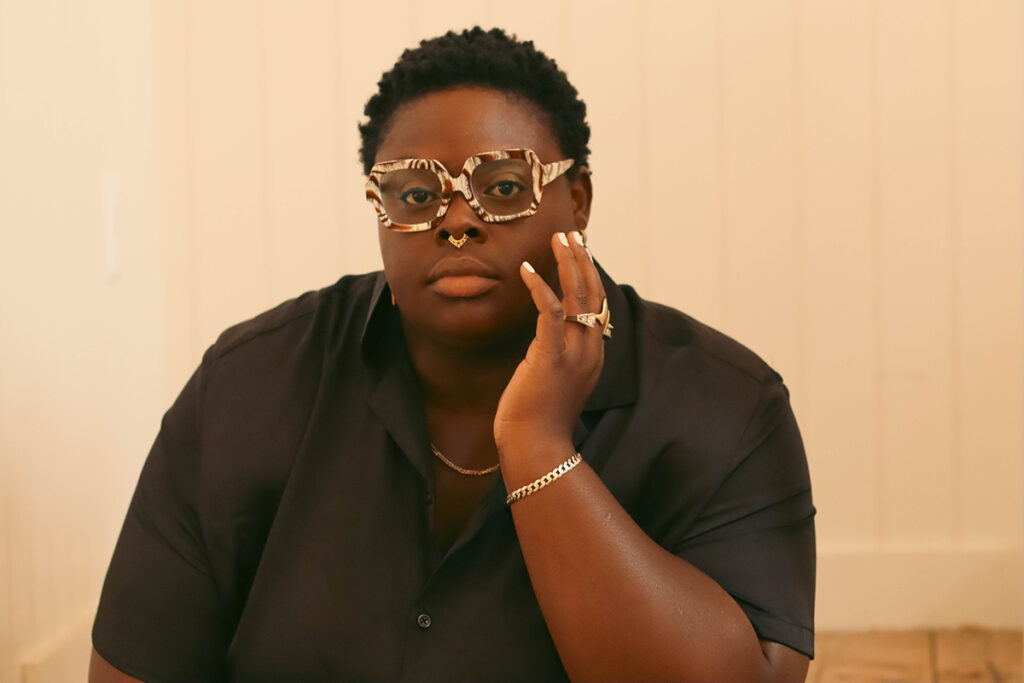
Porsha Olayiwola
Assistant Professor, Writing, Literature and Publishing
Fall 2024 Courses: U.S./American Literatures (LI202); Poetry Workshop (WR605)
Porsha Olayiwola, MFA ‘21 is an Individual World Poetry Slam champion and the author of the collection i shimmer sometimes, too. She is the current Poet Laureate for the City of Boston, and a 2020 Academy of American Poets Poet Laureate Fellow. Olayiwola’s work can be found in or is forthcoming from Triquarterly Magazine, Black Warrior Review, the Boston Globe, Essence Magazine, Redivider, Split This Rock, the NBA, the Academy of American Poets, Netflix, The Rumpus, Wilderness Press, the Museum of Fine Arts – Boston, and elsewhere. Olayiwola received her MFA from Emerson, where she has taught as an affiliated faculty member since 2020.
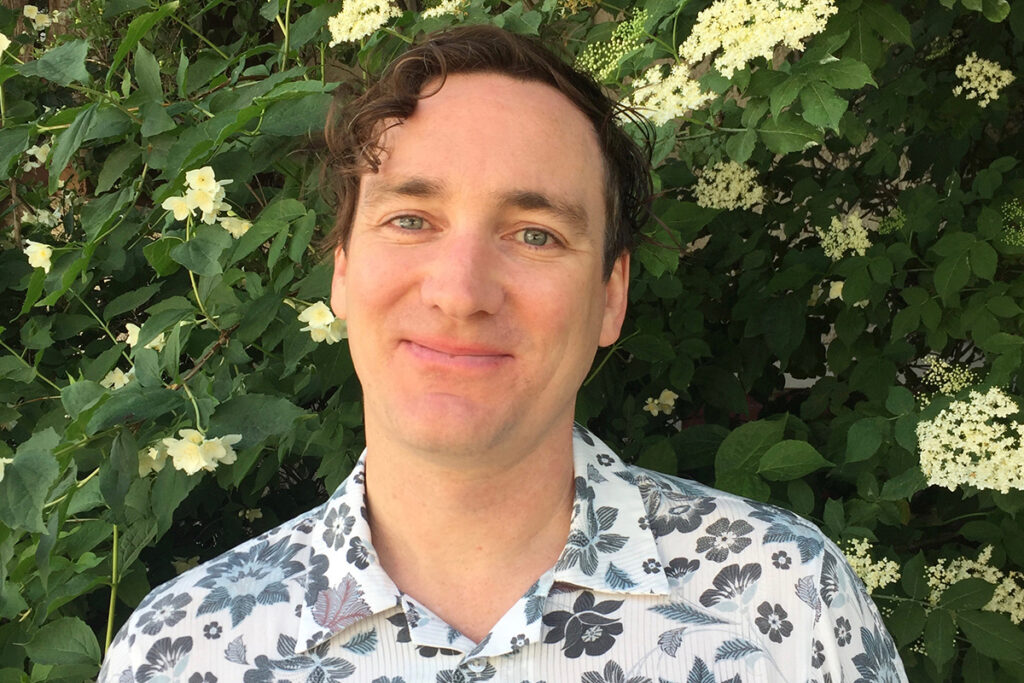
Hunter Vaughan
Assistant Professor, Visual & Media Arts
Fall 2024 Courses: Approaches in Media Studies (VM131); Topics in Media Studies: Environmental Media Studies (VM655)
Hunter Vaughan is an environmental media scholar and cultural historian focusing on the relationship between media technologies, social justice, and the environment. Vaughan is the author of the monographs Where Film Meets Philosophy (2013) and Hollywood’s Dirtiest Secret: The Hidden Environmental Costs of the Movies (2019), as well as numerous articles, and co-editor of the Anthem Handbook of Screen Theory (2018) and Film and Television Production in the Age of Climate Crisis (2022). He was a 2017 Rachel Carson Center Fellow, and is co-founding editor of the Journal of Environmental Media. He is Co-Director of the Global Green Media Network, and co-primary investigator on the Internet Society Foundation-funded Sustainable Subsea Networks grant project. He holds degrees from the University of Southern California, the University of Sussex, and the University of Oxford.
What’s the most exciting development/trend happening in your field/medium right now?
Personally, I am most excited by the burgeoning interest in the environmental ramifications of digital culture, as they shift to focus on the materiality and resource costs and impacts of internet growth and digital media expansion. I am also excited to see more academics in the field eager to step out of the ivory tower and collaborate with practitioners and policy makers in pursuit of more sustainable and just futures.
What’s the last thing you learned?
That Ireland has apparently hit the tipping point in that their data centers use more energy than their urban population. In other words, the multinational corporate engines for storing and circulating global data are gobbling up more resources than the people who live there!
What do you hope students take away from your classes?
That their media consumption and practice are not abstract and siloed from their social context — that they have material costs and very real impacts on issues of social power and justice. I want them to feel empowered by knowledge, and to embrace the agency and responsibility of being an ethical participant in local and global communities.
Pop quiz: Favorite work of fiction (any medium) and most interesting work of nonfiction (again, any medium).
Hmmmmmm, tough! I suppose The Price of Salt (Patricia Highsmith’s novel, in conjunction with Todd Haynes’ amazing film adaptation, Carol). Nonfiction…very much been enjoying Watching the English, Kate Fox’s ethnographic study of the British.
What do you love to do when you’re not working?
Play violin, hang out with my cats, learn new languages, swim in the ocean.
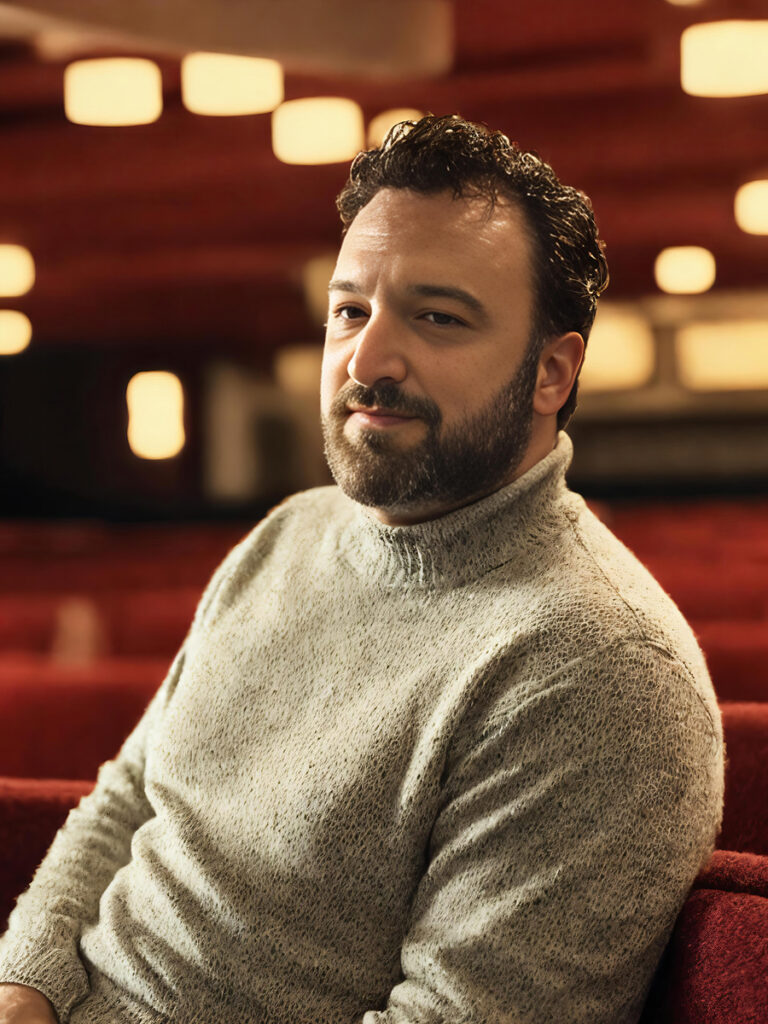
Jason Lyons
Assistant Professor, Performing Arts
Fall 2024 Courses: Foundations of Stage Design I (TH170); Lighting Design I (TH242)
Jason Lyons is a globally recognized lighting designer, renowned for his work on numerous Broadway hits, including On the Town, Hand to God, and Rock of Ages, alongside extensive contributions to Off-Broadway, regional, corporate, and architectural projects. He specializes in fusing art with technology, prioritizing sustainable design and promoting accessibility in arts education. Among his accolades is the prestigious 2016 Obie Award for Excellence in Lighting Design. Additionally, Lyons serves as the Artistic Director for the Bakowski Bridge of Lights in Shreveport, Louisiana, where he has pioneered a curriculum with the local school district aimed at Title I students. It introduces them to storytelling through design and potential careers, and empowers them to utilize their voices in creating custom light shows on the bridge. He is a member of USA Local 829.
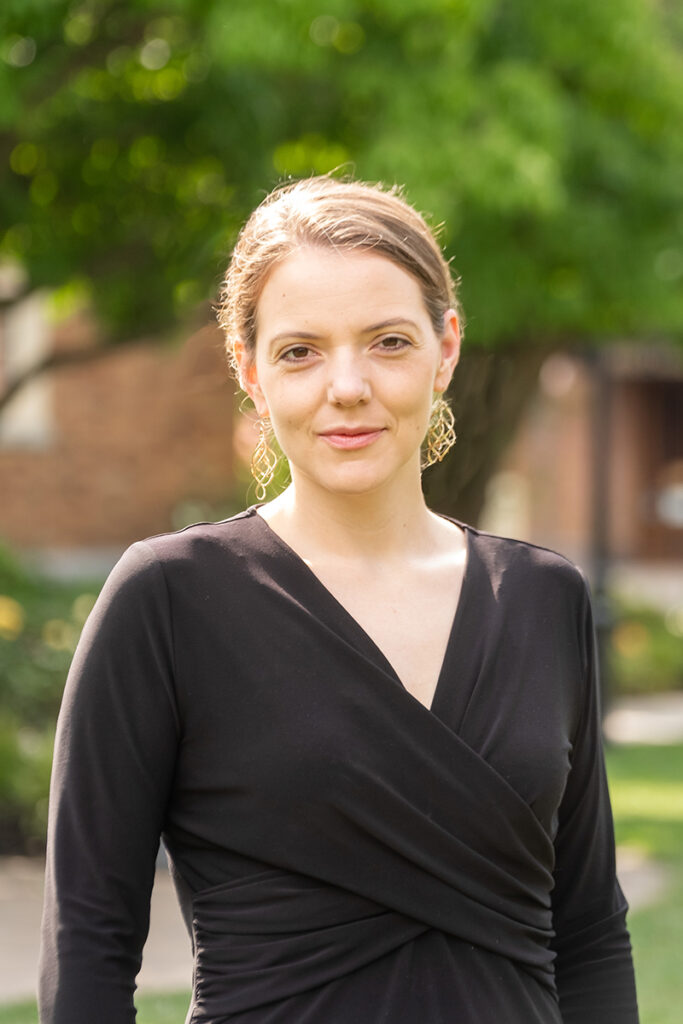
Rachel Zhang
Assistant Professor, Writing, Literature and Publishing
Fall 2024 Courses: Literary Foundations (LI201); Topics in Global Literature (LI423)
Rachel Dunn Zhang researches the intersection of politics, religion, and literary form in early modern literature. Her first book, Reimagining Constancy in the English Civil Wars (Edinburgh University Press, 2024), shows how the conservative language of constancy underwrites radical innovation in religiopolitical thought and literary form in the 17th century. Her work has been published in Milton Studies, Ben Jonson Journal, Studies in Philology, Early Modern Women, The Seventeenth Century, and Notes and Queries. Zhang also is a contributing editor and reviewer for The Pulter Project at Northwestern University. Her second book project embraces a transnational approach to early modern romance, examining how writers in Asia and Europe use romance’s characteristically digressive structure to examine the relationship between individual agency and higher authority. Zhang earned her PhD from Columbia, her master’s from the University of Oxford, and her BA from Princeton.
What’s the most exciting development/trend happening in your field/medium right now?
The pandemic accelerated what already were exciting trends in using technology to study early modern texts. The move towards digitization of early modern texts and images, for instance, increases access and equity in the field. You don’t need to have physical access to a large research library to look at materials; anyone can do it, from anywhere in the world, regardless of institutional affiliation! Digitization has also facilitated amazing collaborative projects like The Pulter Project, where students and scholars from around the world can contribute their own unique readings of the 17th-century poems of Hester Pulter.
What’s the last thing you learned?
I just visited Plymouth (Mass.), which has both a recreated Wampanoag village and a recreated 17th-century English village. It was fascinating to see each one’s unique lifestyle; in fact, we didn’t see any artifacts in common — except for a pestle system used for grinding corn. The reason for this commonality, we learned, is that the Wampanoag taught the English how to farm and use corn, which wasn’t grown in England. I also didn’t know that when the English settlers arrived, they found agricultural fields already cleared by the Wampanoag, most of whom had recently died in an epidemic.
What do you hope students take away from your classes?
My dream is that students leave my classes more empathetic towards others, more curious about the world, and more engaged to make it better.
Pop quiz: Favorite work of fiction (any medium) and most interesting work of nonfiction (again, any medium).
I have read Charlotte Bronte’s Jane Eyre at least five times. Every time I read it, at different stages of my life, I notice different things. Now, I am struck by Jane’s sense of calling to her vocation as a teacher throughout the novel, from her life as an orphan to St. John Rivers’ (rejected) invitation to missionary work. For nonfiction, I am still haunted by Babi Yar, an account by Anatoly Kuznetsov of the Nazi atrocities in Kyiv during the Holocaust.
What do you love to do when you’re not working?
My family and I are brand-new to New England, so we’re having fun discovering new things to do. I love my new running route along the Charles River, and I enjoy taking my kids to historical sites, outdoor concerts, and cultural events specific to the Boston area. I also love music, playing piano, and singing operatic soprano, so I’m excited for Boston’s musical and theatrical scene!
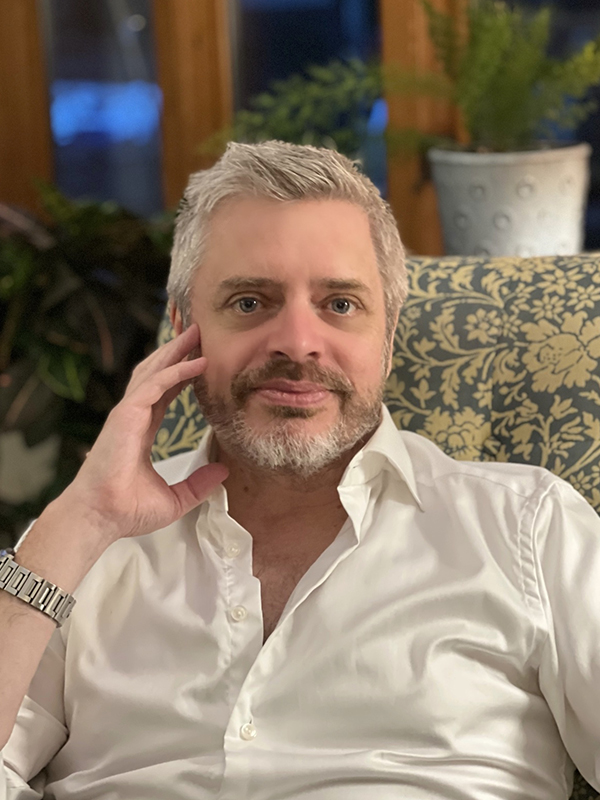
Paul Harding
Professor, Writing, Literature and Publishing
Fall 2024 Courses: Topics in Multiple Genres and Hybrid Forms: Shakespeare’s Narrative Methods (LI615); Fiction Workshop (WR606)
Paul Harding is the author of three novels: the Pulitzer-Prize-winning Tinkers, Enon, and This Other Eden, which was a finalist for the National Book Award, shortlisted for the Booker Prize, and one of President Obama’s favorite books of 2023. He has received fellowships from the Guggenheim Foundation, the National Endowment for the Arts, and PEN America. Prior to coming to Emerson as Distinguished Professor of Creative Writing, Harding taught at Harvard College, the Iowa Writers’ Workshop, the Michener Center for Writers, and Stony Brook University. He teaches workshops in narrative prose (fiction, memoir, various genres/idioms) and seminars (most often on the Old Testament, Shakespeare, and short novels).
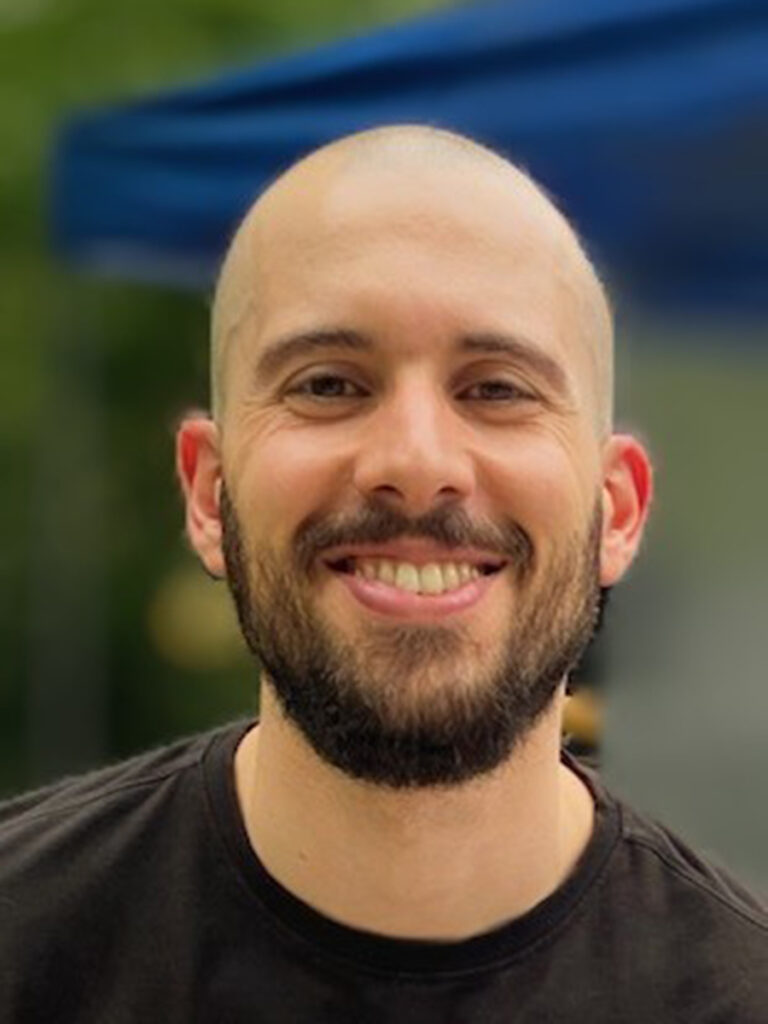
Marcio Santetti
Assistant Professor, Marlboro Institute
Fall 2024 Courses: Topics in Economics: Principles of Macroeconomics (EC210)
Marcio Santetti is an applied economist whose main research interests revolve around the distributive and environmental aspects of business cycles. For the past eight years, he has taught a wide variety of economics courses, including Macro/Microeconomic Theory, Probability, Econometrics, and Applied Forecasting. His research has appeared in outlets including Review of Social Economy, Structural Change & Economic Dynamics, Review of Political Economy, and International Journal of Applied Economics. Having received his PhD from the University of Utah, his main goal in the classroom is to make economic concepts as palatable and intuitive as possible.
What’s the most exciting development/trend happening in your field/medium right now?
In the field of macroeconomics, inflation has been a hot topic since COVID. Whether it comes from excess demand, supply chain disruptions, or greedy corporations is a matter of intense debate among different economists. The pandemic required us economists to look for new explanations for rising prices, and in my view, that’s healthy for the field as a whole.
What’s the last thing you learned?
What “townie” means.
What do you hope students take away from your classes?
If I say, ‘Good, practical skills to better understand the economy,’ they will think I’m a pushover, so I’ll say, ‘My very challenging exam questions.’
Pop quiz: Favorite work of fiction (any medium) and most interesting work of nonfiction (again, any medium).
I’ll go with TV. Fiction is Breaking Bad, for sure. For nonfiction, I will go with Making a Murderer.
What do you love to do when you’re not working?
Long walks, hiking, and cooking are among my favorite activities to clear my mind.
Categories